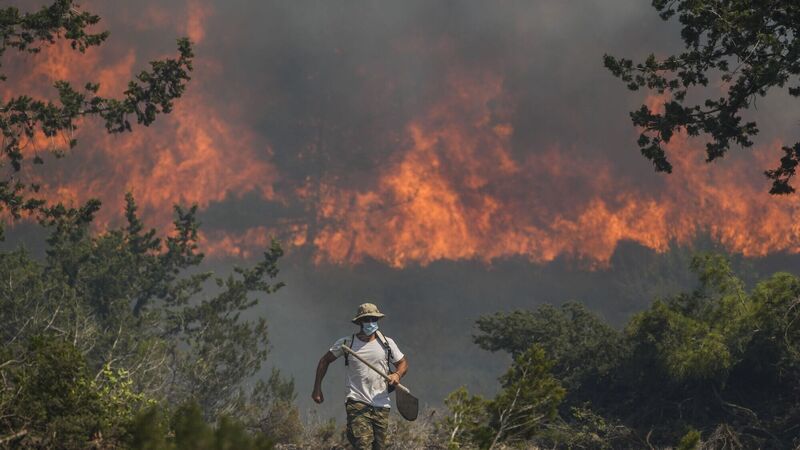Journeys of destruction are of our own making

Flames burn a forest in Vati village, on the Aegean Sea island of Rhodes on Tuesday. A third successive heat wave in Greece pushed temperatures back above 40 degrees Celsius across parts of the country on Tuesday following more nighttime evacuations from fires that have raged out of control for days. Picture: AP/Petros Giannakouris








